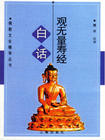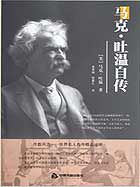"Surely you would have destroyed their bridge?" I said. "But they are rebels," was the answer. It has been so throughout the contest;and the same argument has been held by soldiers and by non-soldiers--by women and by men. "Grant that they are rebels," I have answered. "But when rebels fight they cannot be expected to be more scrupulous in their mode of doing so than their enemies who are not rebels." The whole population of the North has from the beginning of this war considered themselves entitled to all the privileges of belligerents; but have called their enemies Goths and Vandals for even claiming those privileges for themselves. The same feeling was at the bottom of their animosity against England. Because the South was in rebellion, England should have consented to allow the North to assume all the rights of a belligerent, and should have denied all those rights to the South! Nobody has seemed to understand that any privilege which a belligerent can claim must depend on the very fact of his being in encounter with some other party having the same privilege. Our press has animadverted very strongly on the States government for the apparent untruthfulness of their arguments on this matter; but I profess that I believe that Mr. Seward and his colleagues--and not they only but the whole nation--have so thoroughly deceived themselves on this subject, have so talked and speechified themselves into a misunderstanding of the matter, that they have taught themselves to think that the men of the South could be entitled to no consideration from any quarter. To have rebelled against the stars and stripes seems to a Northern man to be a crime putting the criminal altogether out of all courts--a crime which should have armed the hands of all men against him, as the hands of all men are armed at a dog that is mad, or a tiger that has escaped from its keeper. It is singular that such a people, a people that has founded itself on rebellion, should have such a horror of rebellion; but, as far as my observation may have enabled me to read their feelings rightly, I do believe that it has been as sincere as it is irrational.
We were out riding early on the morning of the second day of our sojourn in the camp, and met the division of General Mitchell, a detachment of General Buell's army, which had been in camp between the Green River and Louisville, going forward to the bridge which was then being prepared for their passage. This division consisted of about 12,000 men, and the road was crowded throughout the whole day with them and their wagons. We first passed a regiment of cavalry, which appeared to be endless. Their cavalry regiments are, in general, more numerous than those of the infantry, and on this occasion we saw, I believe, about 1200 men pass by us. Their horses were strong and serviceable, and the men were stout and in good health; but the general appearance of everything about them was rough and dirty. The American cavalry have always looked to me like brigands. A party of them would, I think, make a better picture than an equal number of our dragoons; but if they are to be regarded in any other view than that of the picturesque, it does not seem to me that they have been got up successfully. On this occasion they were forming themselves into a picture for my behoof, and as the picture was, as a picture, very good, I at least have no reason to complain.
We were taken to see one German regiment, a regiment of which all the privates were German and all the officers save one--I think the surgeon. We saw the men in their tents, and the food which they eat, and were disposed to think that hitherto things were going well with them. In the evening the colonel and lieutenant-colonel, both of whom had been in the Prussian service, if I remember rightly, came up to the general's quarters, and we spent the evening together in smoking cigars and discussing slavery round the stove. I shall never forget that night, or the vehement abolition enthusiasm of the two German colonels. Our host had told us that he was a slaveowner;and as our wants were supplied by two sable ministers, I concluded that he had brought with him a portion of his domestic institution.
Under such circumstances I myself should have avoided such a subject, having been taught to believe that Southern gentlemen did not generally take delight in open discussions on the subject. But had we been arguing the question of the population of the planet Jupiter, or the final possibility of the transmutation of metals, the matter could not have been handled with less personal feeling.
The Germans, however, spoke the sentiments of all the Germans of the Western States--that is, of all the Protestant Germans, and to them is confined the political influence held by the German immigrants.
They all regard slavery as an evil, holding on the matter opinions quite as strong as ours have ever been. And they argue that as slavery is an evil, it should therefore be abolished at once. Their opinions are as strong as ours have ever been, and they have not had our West Indian experience. Any one desiring to understand the present political position of the States should realize the fact of the present German influence on political questions. Many say that the present President was returned by German voters. In one sense this is true, for he certainly could not have been returned without them; but for them, or for their assistance, Mr. Breckinridge would have been President, and this civil war would not have come to pass.
As abolitionists they are much more powerful than the Republicans of New England, and also more in earnest. In New England the matter is discussed politically; in the great Western towns, where the Germans congregate by thousands, they profess to view it philosophically. Aman, as a man, is entitled to freedom. That is their argument, and it is a very old one. When you ask them what they would propose to do with 4,000,000 of enfranchised slaves and with their ruined masters, how they would manage the affairs of those 12,000,000 of people, all whose wealth and work and very life have hitherto been hinged and hung upon slavery, they again ask you whether slavery is not in itself bad, and whether anything acknowledged to be bad should be allowed to remain.
But the American Germans are in earnest, and I am strongly of opinion that they will so far have their way, that the country which for the future will be their country will exist without the taint of slavery. In the Northern nationality, which will reform itself after this war is over, there will, I think, be no slave State.
That final battle of abolition will have to be fought among a people apart, and I must fear that while it lasts their national prosperity will not be great.















